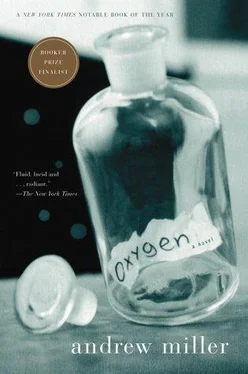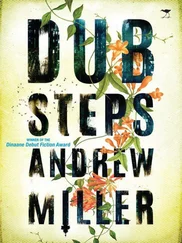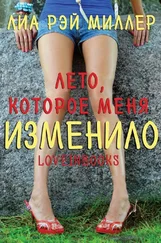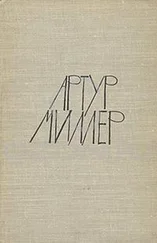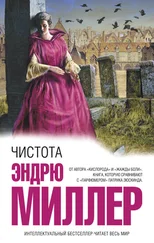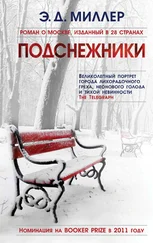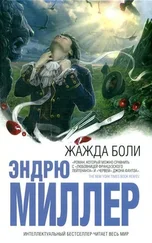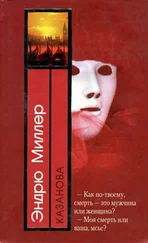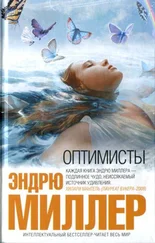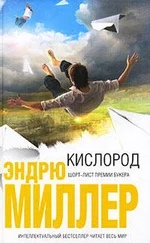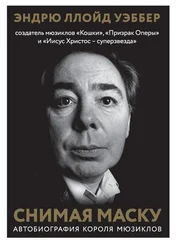He woke as they were pulling into Kelati station, the spell, the unexpected peacefulness of his dream, replaced by a great agitation of noise and movement. In a panic he reached forward, cursing himself and scrabbling under the pages of the newspaper that had fallen from his lap while he slept, and then, in his relief, laughing out loud as his fingers grazed the waxy sides of the bag.
He clambered with it down on to the platform, weaving through the gangs of accommodation touts, tough-looking women mostly, holding up cards with ‘Room to rent’ spelled out in English and German and Italian. Above their heads, pigeons flew in swift formations, their wings rippling the light that fell in a wash from the great fan window at the city end of the station. Émigré, playwright, international courier, László Lázár was back, and in his old language he silently greeted his old home.
On Sunday morning, Alice Valentine waited on the sofa in the living room at Brooklands. She was wearing a fawn winter coat, and round her neck a stole of mink fur, with a mink’s desiccated head on either end of it. The stole had belonged to her mother, and fifty years ago might have bestowed some glamour on a young woman with an evening dress and a powdered throat, but time and hordes of golden moths had done much damage to it. The creatures, with their glass eyes and ragged ears, seemed to be suffering from acute alopecia, and Alec thought of the old dog skin at the end of Lampedusa’s The Leopard, dropped from a window on to a dust heap. But Alice had wanted it, and after long searching he had found it coiled in a hatbox at the back of a wardrobe on the landing. None of them knew why she wanted it; perhaps in tribute to her mother on the visit to the old house. No one asked her for reasons any more.
It was a quarter to twelve by the time they left: Larry, Ella and Kirsty in the back of the car, Larry with his knees almost up to his chin; Alice in the front with her stick, her oxygen, her tissues, her supermarket carrier bag of pill bottles. They travelled on minor roads under the looped shadows of the trees, Alec leaning forward at the wheel like a card player, though there was almost no traffic. Ella, in a green frock and sandals, sat between her parents, poised and silent. Larry scratched the top of her head and she gazed up at him.
‘How you?’ he whispered. ‘How we?’
They had had their little talk about the return of the capsule (‘our secret’), though he had spoken to her more in gratitude than reproach. He was grateful to Alec too. Evidently his conversation with her had been more effective than they had realized. The thing was gone now; Alec had sent it the same way as the others (extraordinary what gets flushed down people’s toilets!), so that particular crisis was over. He had been unexpectedly reprieved, and the escape had invigorated him, so that for the first time in months he felt that better things might be possible. If he could rein back on the booze, the powder, the tablets, the mood swings, the lying, this time perhaps he would defy the lengthening odds and make the world right again. But the change would have to be convincing. It would have to show on his skin like a light, for there were only so many times a person could promise reform before the words ‘I’ll change’ began to sound like ‘I want to change but I can’t’. It might, of course, be too late; he was so cut off from Kirsty’s private thinking now, the tendency of her thinking. For all he knew she had already instructed someone in the States, some lawyer, and he’d go home to find the paperwork waiting for him. She’d had a week on her own over there, and that Khan bitch might have talked her into something. But it was his instinct that he still had one last chance, and he intended to reach for it.
With his left arm laid along the top of the seat – his hand behind the nape of his wife’s neck so that she would only have to lean back a little for them to be touching—he gazed through the side window of the car and saw a half-dozen rabbits scattering across a field. Sheep grazed; lion-coloured cows stood by troughs in the shade of trees, swishing their tails. There was corn growing and oilseed rape, and red tractors raising a dust in the hayfields. In spite of everything – motorways, pesticide, a million new homes – here at least the country had retained its riches, its mannerly beauty. In his hurry to put England behind him he had underprized this. Now he felt the tug of it, as though this landscape – the first he had opened his eyes to – had some authoritative claim on him, something at the level of blood, which he was finally ready to acknowledge.
He looked at his mother, hunched in her seat as though the air were hardening on her shoulders. Could she take any pleasure in this? Was that still possible? It was a long time since she had been out of the house – a long time since going somewhere meant anything other than going to the hospital – and when he and Kirsty had gone in with her morning tea (into the shaded room no breeze seemed to freshen) she had been so flustered and confused they had wondered if the outing would be possible at all. She had complained wretchedly that she could no longer find any position to be comfortable in; how at night she wanted to turn on to her side but was afraid she would suffocate. Then, when Kirsty left them alone – Ella calling ‘Mom!’ from the bottom of the stairs – she had said she knew what a ‘kind doctor’ would do, a remark that Larry had refused to understand, though she had followed him around the room with her eyes until Kirsty came back and he could escape into the garden for a smoke.
For days now (months?) he had been trying to gather in himself the courage to speak to her. He needed – and the need was urgent – to appear before her as he truly was, to make himself visible to her: no more the shining target of her old pride, but a man who had proved unequal to those imperfections in himself he had barely suspected the existence of five years ago. And though he supposed she had already resigned herself to the loss of the old dream in which they had been such loyal partners, he was afraid that she would slip away (say ‘die’, Larry!) while some pretence still clouded the space between them. He needed to be recognized. It would take no more than a moment’s attention, a hand raised in blessing, but he would have to choose his moment with the utmost care. And choose it very soon.
To the right of them was Salisbury Plain: low, pale green hills jointed to the sky by fragments of dense, dark woodland. Then as they came within twenty miles of the house, Alice began to point things out. A church where she had once been a bridesmaid. A haunted pub. The gates of an estate behind which some local character had lived out a lordly decline.
To Ella, Kirsty explained: ‘This is where Gran’ma lived when she was a little girl.’
‘OK,’ said Ella, and she put on a short mime of looking out with interest, though there wasn’t much to excite a child from North Beach who had seen canyons and mountains and giant sequoia trees.
When Alec missed the turn-off, Alice waved a crumpled tissue at him and called him a fool, as if they drove this way every week. He apologized, reversed, and turned into a lane that ran between unmown verges, the ruts and potholes blue with last week’s rain.
‘Wow,’ said Kirsty, ‘real countryside.’
‘We may see some bears,’ said Larry. ‘Better wind up your window, Mum.’
But she wasn’t listening to them any more. She wasn’t interested in their chatter. This was private.
Larry leaned forward and touched his brother’s shoulder. ‘You remember this?’
Alec nodded. There were fields here they had once played in together, greening their knees. And certain small farms they had worked on during the holidays or at weekends, baling or scrumping, earning a few pounds, then drinking milk in the farmhouse kitchen when it was too dark to work. It stirred them, seeing it again, the lane twisting into the hills like time itself, and for the last fifteen minutes the journey was processional and solemn and they rode in silence.
Читать дальше
